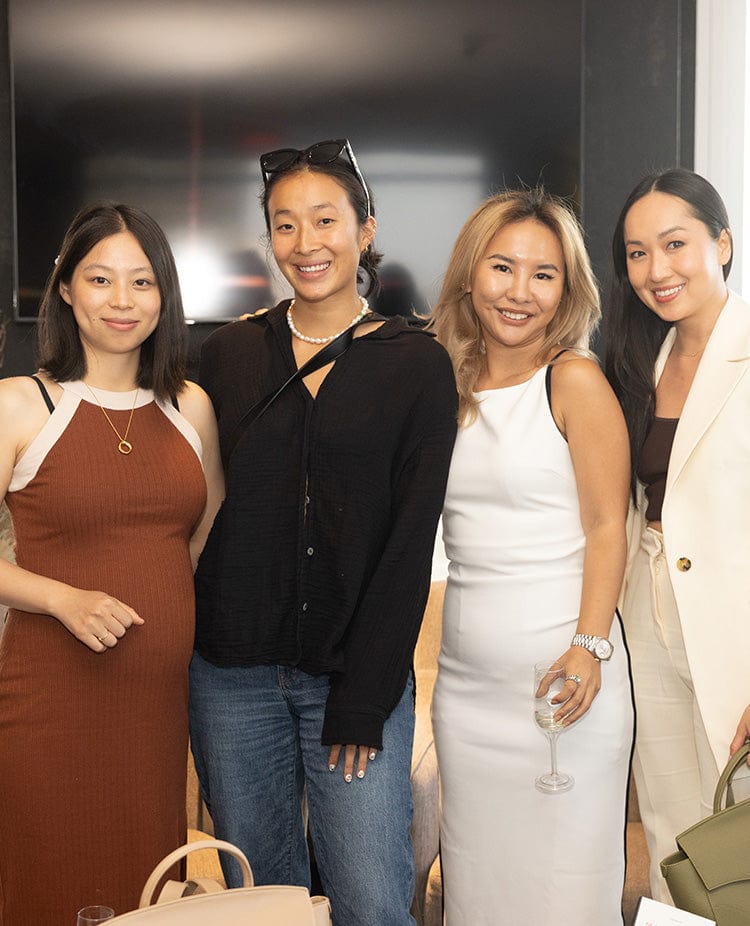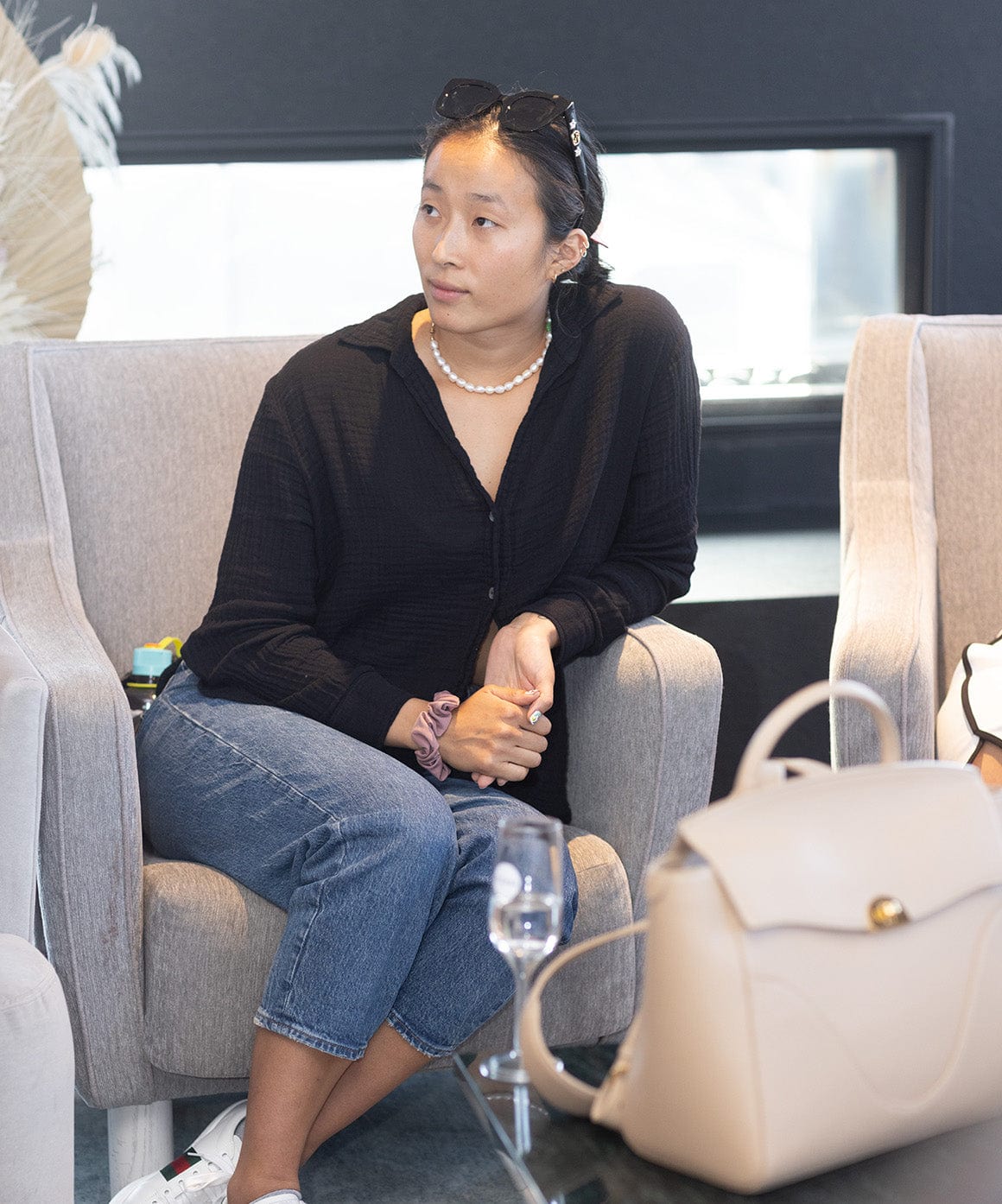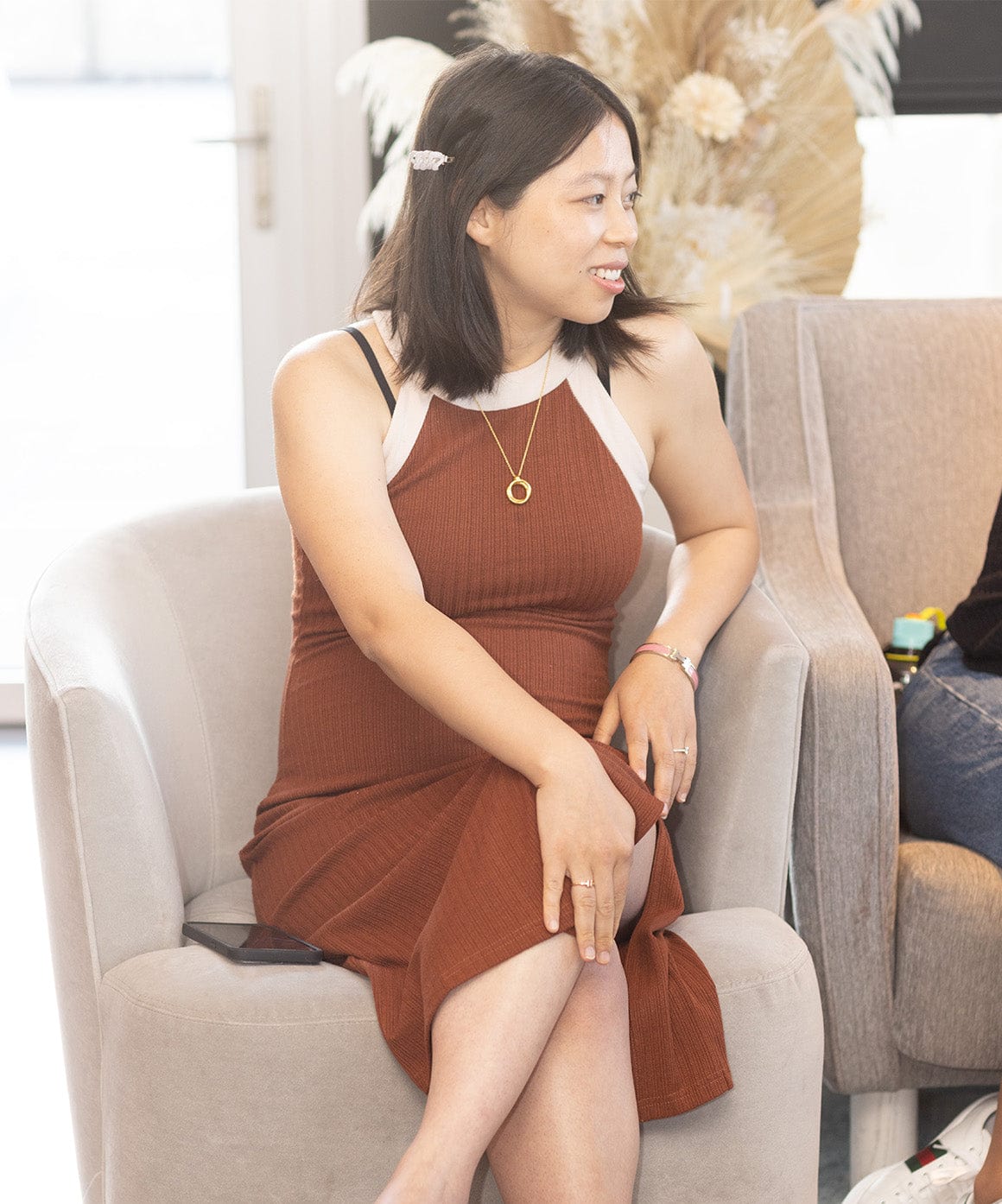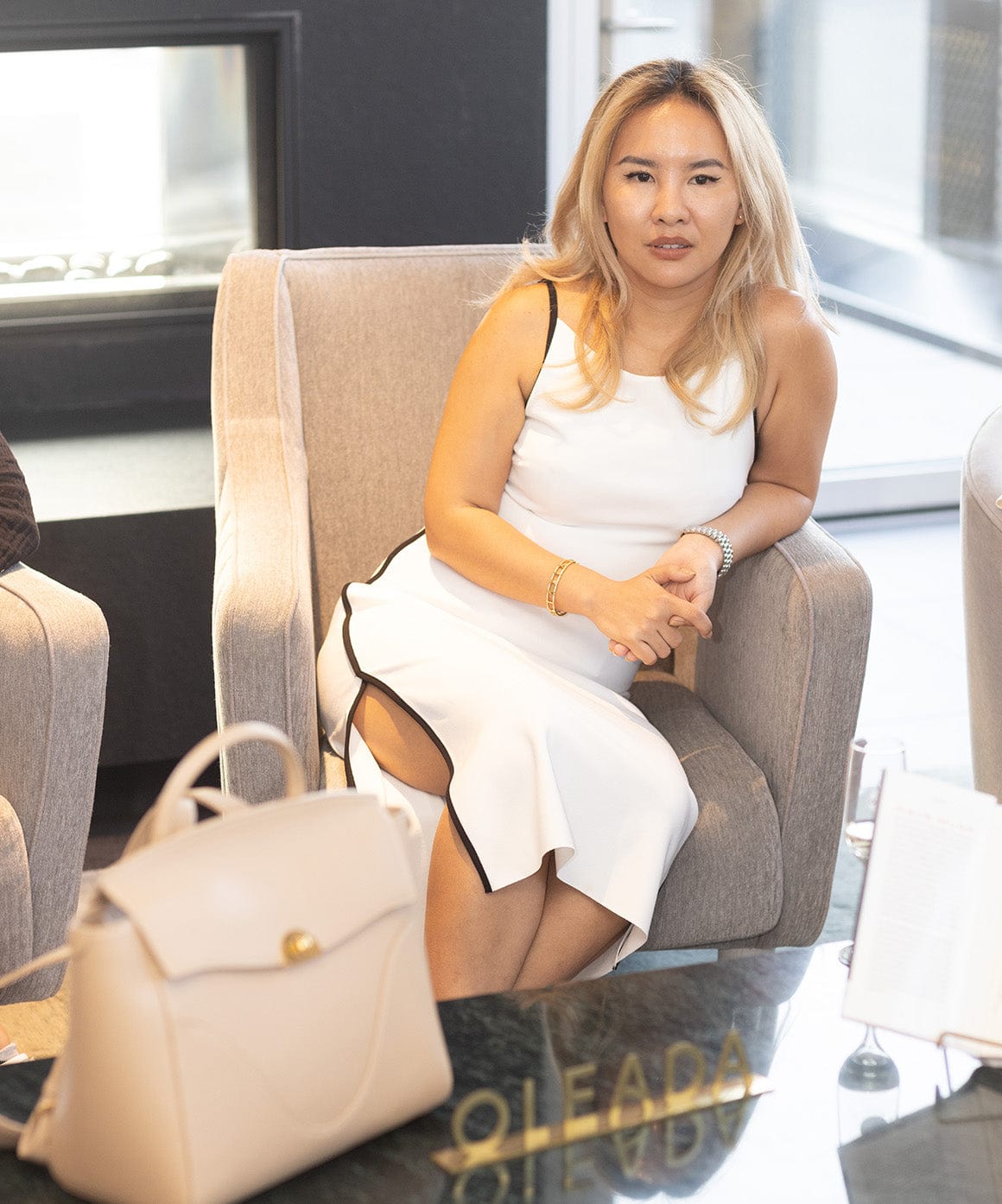
Where Conversions of Empowerment Happen
The OLEADA Lounge
We’re moving beyond business as usual. The OLEADA Lounge is where we come together to defy expectations, rewrite the rules, and pursue our purpose with unwavering confidence. Welcome to a community that celebrates your authentic journey.
Female Minority Entrepreneurs
How would an engineer design women’s handbags? How does a Harvard graduate build a period care brand through TikTok? What would it take to create a clothing brand specially for petite women? In this edition of OLEADA Lounge, we interviewed three New York-based female minority entrepreneurs (our very own co-founder included!). We explored their stories of building recognizable customer-centric brands for women.

Nadya Okamoto
Co-founder of August
August is a sustainable period care company focused on breaking down the period stigma while giving back to underserved communities. For each purchase of their sustainable and biodegradable pads, tampons, and liners - they will donate to the community through the non-profit No More Secrets. The brand raised 2m USD pre-seed before securing a 4m USD seed round.

Jenny Wang
Founder of Petite Studio
Petite Studio provides inclusive sizing for petite-figure women under 5’4. Tired of not finding the right clothing size, Jenny started Petite Studio, which initially was an after-thought shopping struggle to address this niche market.

Tiffany Zhou
Creative Director & Co-Founder of OLEADA
OLEADA is a venture-backed engineering design-driven handbag brand for modern professional women. We strive to bring thoughtfully designed bags to help women live at ease. Since our launch in 2021, our product line has expanded tenfold, and the brand has received more than 1.5m USD funds from institutional investors.
You have connected and built a community around period care with your over 3 million followers on TikTok. Can you share how all of this happened?
Nadya: I am just passionate about period. I am also a co-founder of period.org. August is a lifestyle brand working to reimagine periods; it is also a growing online community aiming to reimagine and redefine the period experience to be powerful and dignified. I want to break the period of shame through August and its community. Girls should not hide their tampons while going to the bathroom.
Petite Studio has a unique position and target customers. How do you ensure the fitting of your clothing is right?
Jenny: Most retail brands don’t really care about petite sizes… Our team makes up of petite girls. Our entire team will try on every sample individually for each style to ensure they fit us first. I am pregnant right now; otherwise, I would try on every piece (about 100 products per season) to ensure the details and fitting are perfect.
OLEADA adopts a unique design approach called “Design Thinking.” What is that?
Tiffany: I was trained as an engineer. I was not prepared when OLEADA was first started because I had zero experience in designing bags. But at my previous jobs in tech consulting, we applied Designed Thinking in all types of projects. First is to learn about users’ needs, build prototypes and test them, then keep iterating the process until you finally get what you want. We adopt the same approach to designing OLEADA bags. We shadowed 20 professional women in cities such as New York, Hong Kong, Shanghai, Dubai, London, etc., to observe their typical workday. We concluded the top four pain points that a perfect workbag should cater to: lightweight, laptop friendly, durable, and minimal. Then we held meetings with our designer, marketer, technician, seed users, and e-commerce team to build the first batch of prototypes. In the beginning, we launched our designs onto the market in small batch productions and let the users tell us what they didn’t like through actual use. You might be surprised that our signature Wavia Bag has already undergone three major updates.
What does sustainability mean to you and your brands?
Nayda (August): Did you know ordinary pads take years to dissolve in the natural environment? That’s why I think many tampon brands are merely green-washed. They say, “for each box of pads, we donate a tree,” while a tree takes years to grow, and the plastic waste pads create is irreversible. We are very proud that all our products are so sustainable that they dissolve in an organic environment quickly. There are TikTok videos where I show our pads/tampons dissolve in hot water!
Jenny (Petite Studio): It’s about transparency and ethical practice. All our products are made in China, and we are aware of the stereotypes of unethical manufacturing in China. To prevent it, we carefully vet all our manufacturing partners before collaboration to ensure that they take good care of their staff and use sustainable materials in production. My ground team in Hangzhou works close to the manufacturer and pays random visits to ensure there is no questionable practice that violates our values.
Tiffany (OLEADA): We are an ocean-inspired brand that champions slow fashion. We love nature, and we believe in timeless products both in aesthetics and quality because fashion already accounts for 10% of greenhouse emissions from human activity, which is why we use traceable leather from the food industry and recycled materials to make our bags. We also encourage our customers not to throw their used OLEADA bags away and send them back to us for proper recycling.
What would be the top impact you could make with your brand, even if it failed?
Nayda (August): We helped to break the period taboo. There should be no shame in period.
Jenny (Petite Studio): We have spoken for the under-presented petite women.
Tiffany (OLEADA): One step closer to a more gender-balanced world. I quit my job in private equity because I saw the glass ceiling of an Asian girl in the professional world, and I want to change the game by building a brand that empowers professional women.





